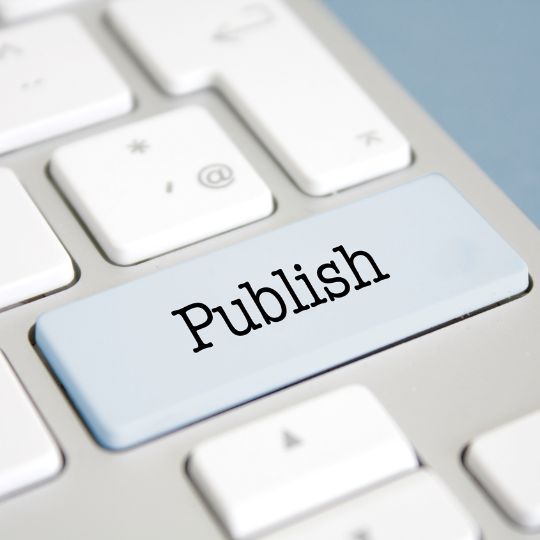The Ultimate Guide for Authors: Choosing a Literary Agent and Navigating the Approach
This is a summary article that broadly covers a complex topic – for more specific advice, please ask inside the Colony.
One of the most important steps in establishing a successful writing career is finding the right literary agent. A literary agent acts as a bridge between authors and publishers, helping authors secure book deals, negotiate contracts, and navigate the complex world of publishing. Although some authors decide not to use an agent, there are key steps you can take if you wish to find one that is a good match for you. Use this summary to extract useful tips and draw inspiration from the experiences of authors who have successfully found representation.
- Understand the Role of a Literary Agent
A literary agent can be of great benefit to an author’s career, acting as a mentor, advocate, and business advisor. Agents possess industry knowledge, fantastic connections, and expertise in many aspects of the publishing world. Literary agents offer a wide range of services, including manuscript evaluation, submission to publishers, contract negotiation, and marketing strategy.
- Research Potential Literary Agents
To find the perfect literary agent, authors must reach out and conduct some in-depth research. Begin by identifying agents who specialize in your genre or field of interest. Attend writing conferences, workshops, and author events to meet agents personally. Additionally, develop this habit: peruse literary magazines, writers’ forums, and online databases such as QueryTracker, Publisher’s Marketplace, or AgentQuery to find agents actively seeking new clients.
- Examine the Experience of Successful Authors
Successful authors often share their experiences of being a novice author, via an interview or article. These can provide valuable insights into the process of finding a literary agent. For example, Stephanie Meyer, the author of the Twilight series, famously discovered her agent, Jodi Reamer, through a referral from a fellow writer. J.K. Rowling, author of the Harry Potter series, found her agent, Christopher Little, after being rejected by numerous publishers. Similarly, authors like John Green, Stephen King, and Margaret Atwood all have unique stories of how they connected with their literary agents.
- Evaluate the Track Records of Literary Agents
Once you have compiled a list of potential literary agents, you should thoroughly evaluate their track records and industry reputation. Prioritize agents who have represented successful authors in your genre as well as those with a proven track record of securing lucrative book deals. Review the books they have helped bring to the market, the publishers with whom they collaborate, and the authors they represent. This is not quick work! Create a digital notebook to build profiles relevant to your short-list of potential agents.
- Personalize Your Approach
Craft a personalized and compelling query letter when you are ready to approach a literary agent. Begin with a captivating hook that champions the essence of your book. Incorporate a very brief synopsis, emphasizing your book’s unique selling points. Tailor your letter to chime with the agent’s specific interests and mention any relevant connections or credentials you possess. Here’s the hard part: keep the query letter concise (ideally, just one page), professional, and error-free.
- Make the Initial Approach
Authors have few options in how they make their approach to literary agents. An initial query letter might get a response or perhaps an invitation to send your submission material. Many authors choose to forego this step, however, and go straight to making a submission. By and large, agents prefer submissions via email, while others accept online forms or traditional mail. Be sure to follow the submission guidelines provided by the agent. Avoid simultaneous submissions (sending your submission to several agents at once) unless explicitly permitted. Include a compelling query letter (see above), a well-crafted synopsis, and a sample of your manuscript as per the agent’s requirements.
- Nurture the Agent-Author Relationship
If you get an email, text message or phone call from an agent you have approached, it means they are showing interest. This is a Big Deal! It means you need to follow through: speak to or meet up with them. Once an agent expresses interest, you might be asked to provide additional materials or even to participate in revisions. Great! It might be hard work for you, but this could be the beginning of a long-term success-focused relationship. It is essential that you establish clear communication and maintain professionalism throughout the process. This is not a parent-child relationship but a form of collaboration in which you can develop long-term career goals.
- Utilize Additional Resources
If you prefer, there are many alternative ways to connect with literary agents. You could, for instance, attend writers’ retreats, workshops, or conferences where agents offer manuscript critiques or one-on-one sessions. Join professional writing organizations like the Authors Guild, Society of Children’s Book Writers and Illustrators (SCBWI), or Romance Writers of America (RWA) to access agent databases, networking events, and educational resources. Opportunities appear often, and often where you least expect to find them.
Remember, finding the right literary agent is not just about securing a book deal; it’s about building a partnership that can shape your writing career for years to come.
This is a broad overview of a dynamic topic: for specific help and encouragement at every stage of your writing life, join the Colony!





